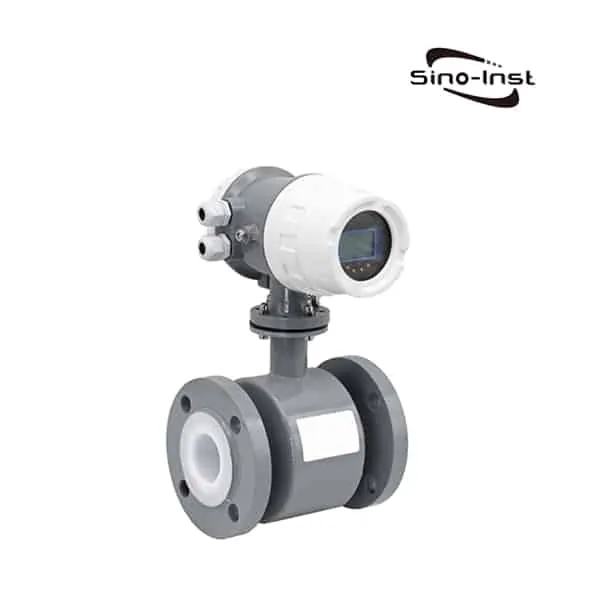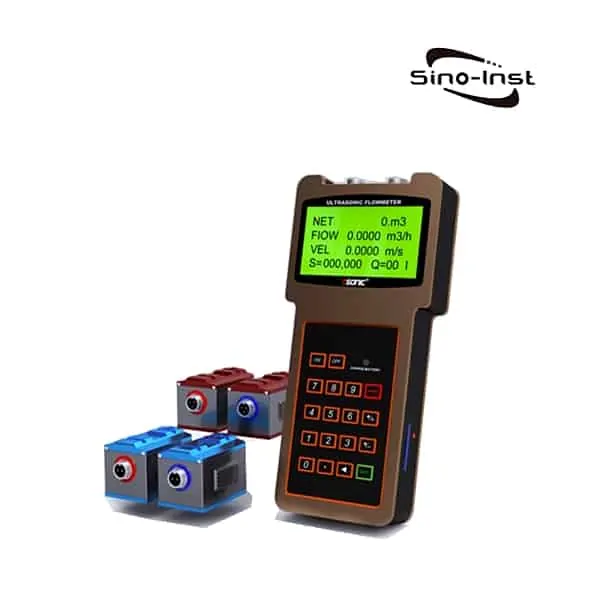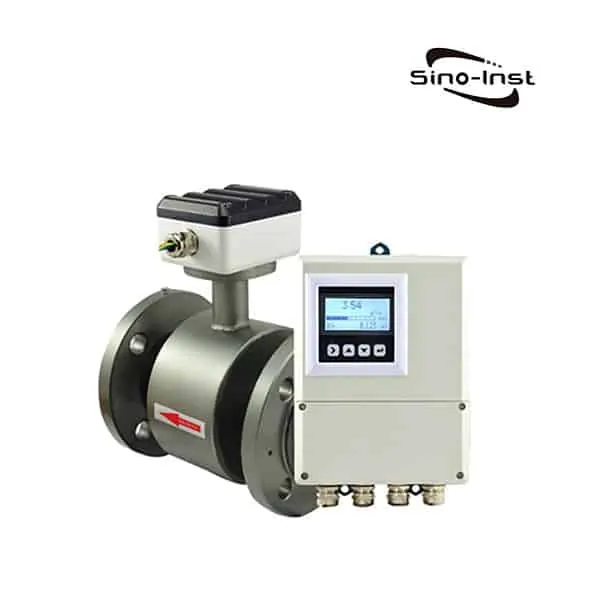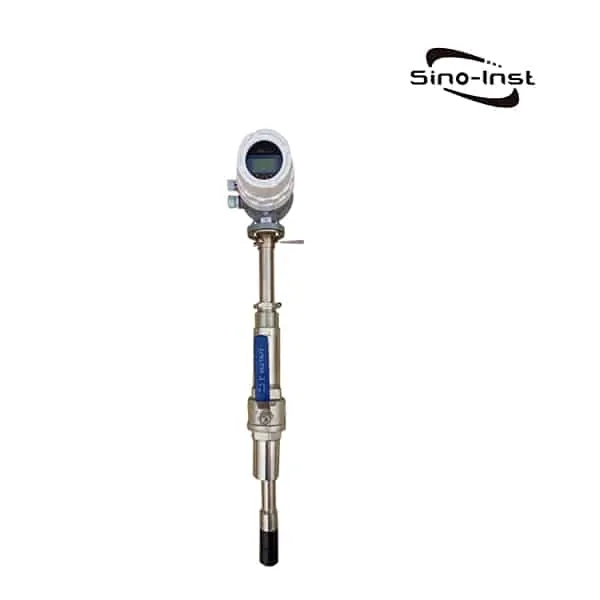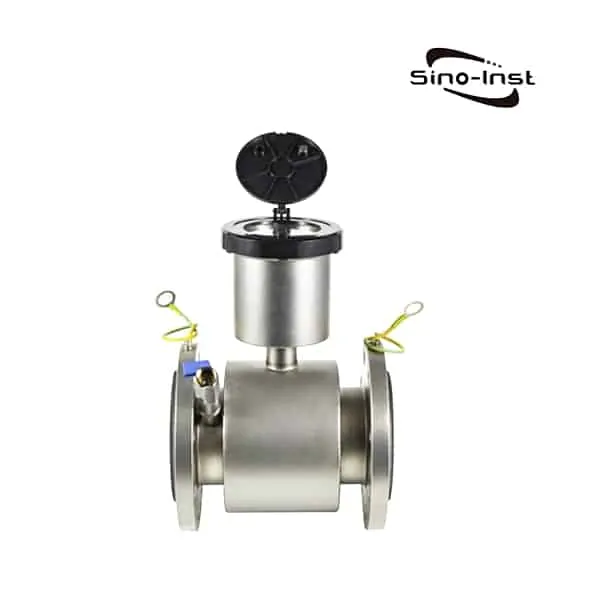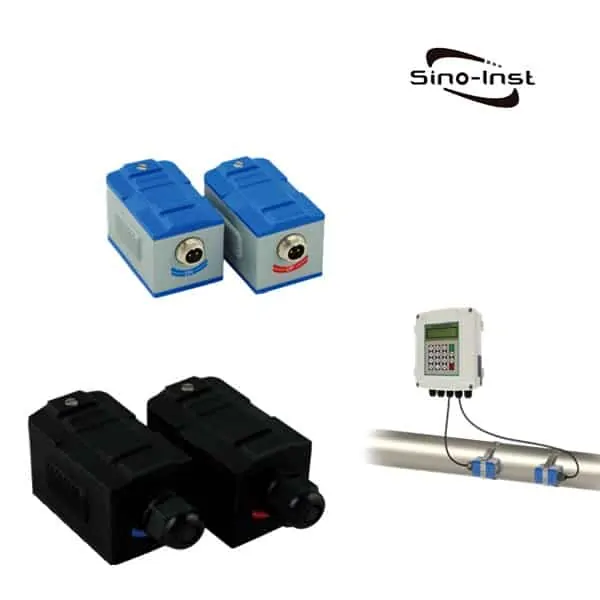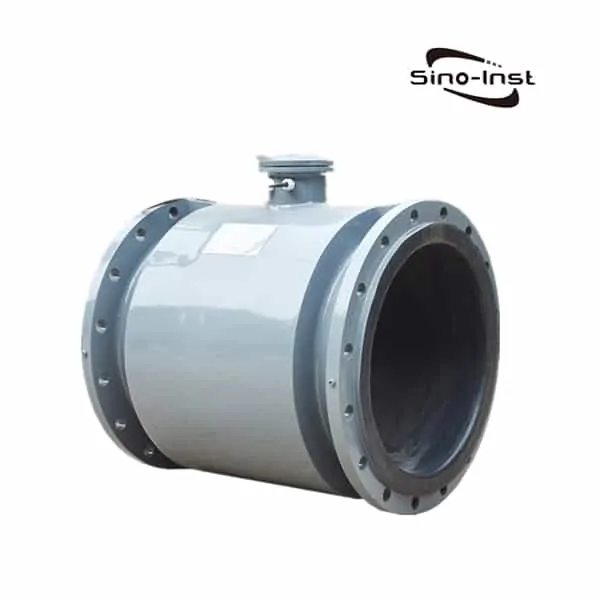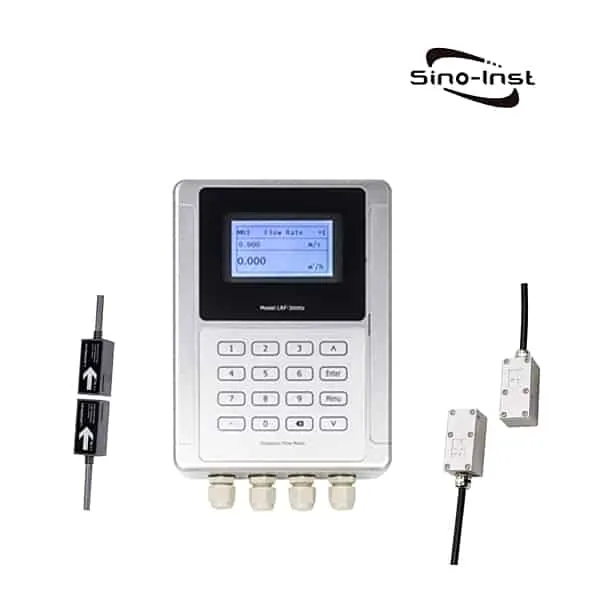
Flow measurement of Slurry and Solids is one of the most challenging applicaiton for magmeters. In wide industrial slurry pipelines, Magnetic Flow meters are ideal choice. Mag flow meters are ideal for any dirty liquid which is conductive or water based. Some types Ultrasonic flow meters can also measure flow rate of slurry, but the cost is too high. So, if you need to measure the flow of slurry or solids, We recommend using an electromagnetic flowmeter.
Specifications of Slurry Flow Meter
- Measurement medium: mud, pulp, cement slurry
- Product classification: compact type slurry flow meter, Remote type slurry flow meter
- Measurement error: ± 1.0% or ± 0.5%
- Dielectric conductivity:> 5μs / cm
- Measurable velocity range: 0.1m / s — 15m / s
- Measurement ratio: 1: 150 (If necessary, you can customize a wider range ratio)
- Power supply: DC24V or AC220V
- Signal output: pulse signal or 4-20mA current signal
- Communication interface: support 485 communication
- Communication protocol: MODBUS, HART, Profibus, etc.
- Normal working environment temperature: -25 ℃ —— + 60 ℃
- Measurable medium temperature: -20 ℃ —— + 60 ℃
- Flow direction: forward, normal, net flow
- Rated working pressure:
- DN10 — DN150 ≤1.6Mpa (high pressure can be customized)
- DN200 — DN350 ≤1.0Mpa (high pressure can be customized)
- DN400 — DN1000 ≤0.6Mpa (high voltage can be customized)
- DN1100 — DN2200 ≤0.25Mpa (high voltage can be customized)
- Connection method: flange connection
- Requirement for straight pipe section: front straight pipe section ≥5DN, rear straight pipe section ≥2DN
- Explosion-proof grade: Exd [ia] qIICT5
- Protection level: IP65, optional IP68
Benefits of Magnetic flow meter for slurry
- SELF CHECKING
- BIDIRECTIONAL MEASUREMENT
- NO PRESSURE LOSS
- NO MOVING PARTS
- Stable and reliable process control in noisy and slurry applications maximize the productivity.
- Longer life-time by robust design
- Minimal downtime and maintenance work.
Working Principle of Slurry Flow Meters
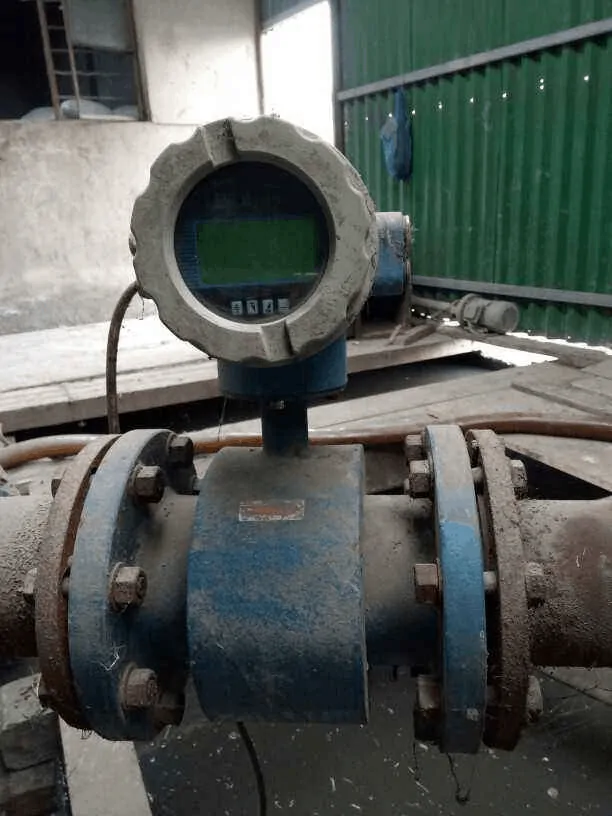
Different types and designs of flow meter are available. Choose the best one depends on the application and the type of liquid being measured. Electro-magnetic meters are typically used for slurry and corrosive liquids. Because magnetic flow meters are able to measure these substances accurately.
Keeping accurate records is essential. Because we need to know exactly how much slurry has been spread in every field, and to demonstrate full regulatory compliance. Today’s modern slurry flow meter designs can help to achieve this.
More about: Sewage Flow Meter Selection
What is the principle of magnetic flow meter? – Faraday’s Formula
Faraday’s Formula
E is proportional to V x B x D where:
E = The voltage generated in a conductor
V = The velocity of the conductor
B = The magnetic field strength
D = The length of the conductor
To apply this principle to flow measurement with a magnetic flow meter. First is to state that the fluid being measured must be electrically conductive for the Faraday principle to apply.As applied to the design of magnetic flow meters, Faraday’s Law indicates that:the signal voltage (E) is dependent on V, B, D.V is the average liquid velocity ;B is the magnetic field strength ;D is the length of the conductor ( which in this instance is the distance between the electrodes).
Guess you like to know more about: Magnetic flow meter working principle and types
Why do you need a slurry flow meter?
When spreading any type of slurry or digestate, accuracy is essential. This means it is important to monitor the spreading process with a slurry flow meter. So that you can be sure of consistent application across the area which is being treated.
At the same time as ensuring that enough slurry is applied, however, it is equally vital not to use more than is needed. This is important for several reasons. One is that over-application is a waste of valuable slurry resources, meaning you spend more than is necessary. Slurry is one of the most cost-effective ways of fertilising agricultural land. But only the application carried out properly..
Spreading too much slurry can also lead to a number of pollution issues. Which could risk failing to comply with legal regulations. Especially if it involves contamination of soil or water courses.
Challenges for Slurry Flow Meter
Flow meters designed for slurries depend on several factors:
- The flow velocity and profile. A balance of keeping solids moving, but not too fast.
- The amount of solids in the carrier fluid.
- The solids properties in the carrier fluid. They vary in many qualities including shape and size.
- Chemical composition of the fluid. Liners for corrosive fluids.
- Solid Abrasiveness. Rough solids cause system noise that interferes with the measurement. Abrasiveness liners can be used if needed.
- Heavy slurry noise may affect on the measurement accuracy and stability
- Shorter replacement cycle because of the mechanical damage caused by slurry.
- High density red-mud covered on the electrodes requires frequent maintenance for the cleaning.
Sino-Instrument’s solutions for Slurry and Solids flow
Looking for a meter to monitor slurry spreading? Sino-Instrument offers high-quality magnetic flow meters which complies with many official standards. It is known for being highly reliable and durable, needing little maintenance to keep it in good working order. The magnetic flow meter is used in the waste water industry and other sectors as well as for slurry, which is a testament to its quality.
To monitor slurry application, the magnetic flow meter can be easily installed within the pipeline, positioned either near to the pump or on the applicator. It has strong liners which are resistant to slurry, and will measure the flow rate accurately, usually in m3 per hour.
Non-retained liners (extruded liner) are susceptible to failures as a result of vacuum conditions that can be created due to a pump or valve failure. Besides, meters that have extruded liners generally have a shorter life due to the aggressiveness of the chemicals used. Sino-Instrument uses an injected molded PFA liner with a retaining grid. This retaining grid plate, used to reinforce the PFA liner, acts like rebar in concrete. This rugged construction holds the liner in place and prevents the liner from caving in due to vacuum conditions. The thickness and durability of the injection molded PFA liner provides a flow tube that is capable of handling the most severe applications.
Extended reading: Radar level sensor for solids – Dust solid level measurement
More about flow monitor techmology
Sino-Instrument offers over 50 flow meter for flow measurement.
About 50% of these are differential pressure flow meters,
40% is the liquid flow sensor, and 20% are Ultrasonic Level Transmitter and mass flow meter.
A wide variety of flow meters options are available to you,such as free samples, paid samples.
Sino-Instrument is a globally recognized supplier and manufacturer of flow measurement instrumentation, located in China.
Request a Quote

Wu Peng, born in 1980, is a highly respected and accomplished male engineer with extensive experience in the field of automation. With over 20 years of industry experience, Wu has made significant contributions to both academia and engineering projects.
Throughout his career, Wu Peng has participated in numerous national and international engineering projects. Some of his most notable projects include the development of an intelligent control system for oil refineries, the design of a cutting-edge distributed control system for petrochemical plants, and the optimization of control algorithms for natural gas pipelines.

